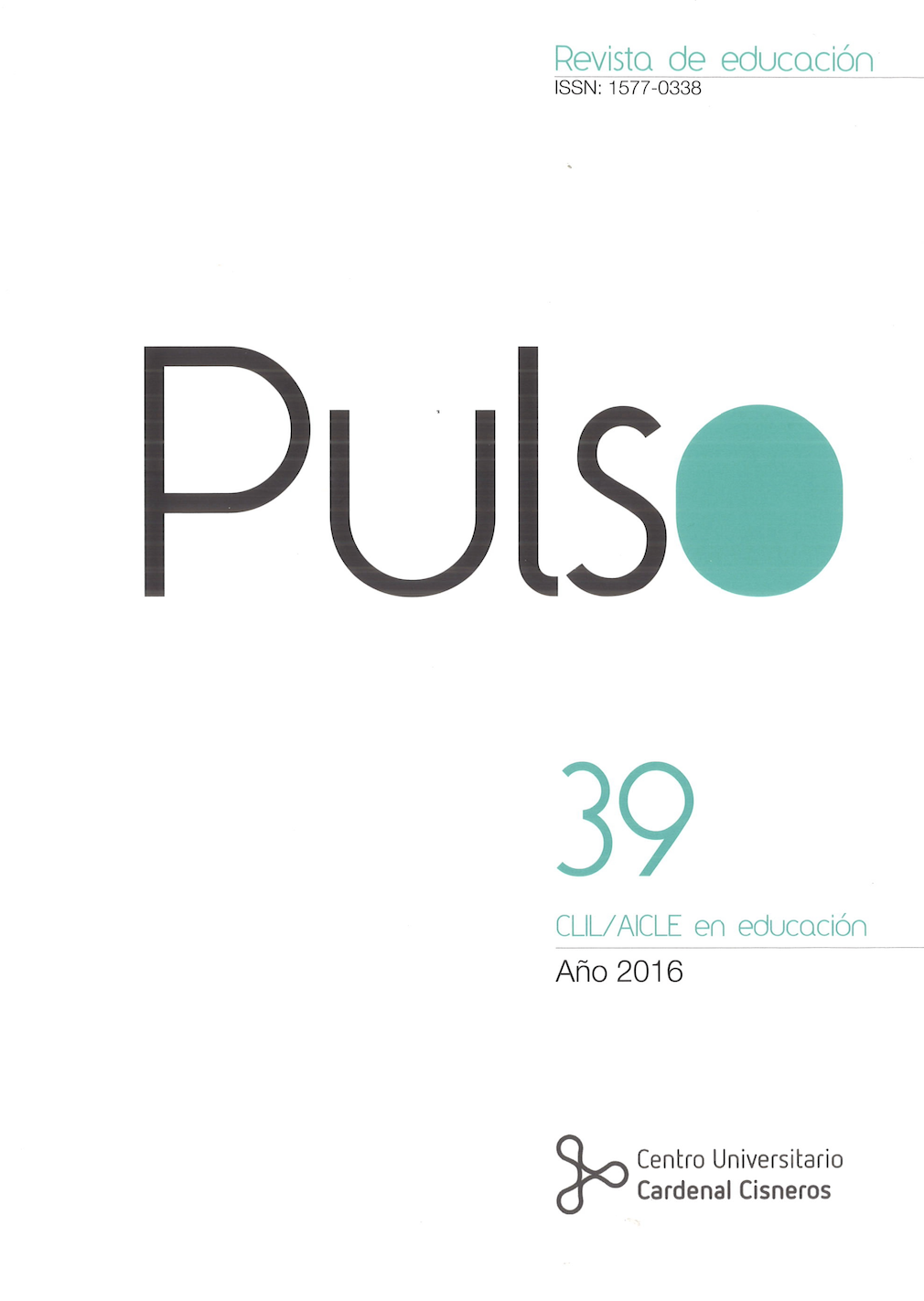Making CLIL workable. A review of Ball, P.; Kelly, K. and Clegg, J. (2015) Putting CLIL into Practice.
DOI:
https://doi.org/10.58265/pulso.5099Resumen
Reseña del libro:
Ball, P., Kelly, K. P., & Clegg, J. (2015). Putting CLIL into practice. Oxford University Press.
Descargas
Citas
Fernández Fernández, R. (in press) Students’ perceptions and concerns on the use of CLIL in Teacher Education Degrees. 39th AEDEAN Conference Proceedings. Universidad de Deusto, Bilbao. 11-13 november. [E-book].
Johnson, M. (2012) Bilingual degree teacher’s beliefs: a case study in a tertiary setting. PULSO, 35: pp.49-74.
Kells, S. (2016) Teaching Teachers How To Teach An Evaluative Study of Teacher Training and Professional Development of Primary School Teachers in the Bilingual Program of the Community of Madrid (Master’s Thesis) Unpublished Master Degree Thesis. Instituto Franklin/Universidad de Alcalá.
Mehisto (2012) Criteria for producing CLIL learning material. Encuentro, 21, pp. 15-33. Retrieved from: http://www.unifg.it/sites/default/files/allegatiparagrafo/21-01-2014/mehisto_criteria_for_producing_clil_learning_material.pdf
Meyer, O.; Coyle, D.; Halbach, A.; Chuck, K. and Ting, T. (2015). A pluriliteracies approach to content and language integrated learning – mapping learner progressions in knowledge construction and meaning-making. Language, Culture and Curriculum, 28/1: pp. 41-57.
Descargas
Publicado
Cómo citar
Número
Sección
Licencia
Derechos de autor 2022 Pulso. Revista de educación

Esta obra está bajo una licencia internacional Creative Commons Reconocimiento-NoComercial-SinObraDerivada 3.0.
Esta revista proporciona un acceso abierto inmediato a su contenido, basado en el principio de que ofrecer al público un acceso libre a las investigaciones ayuda a un mayor intercambio global de conocimiento.
Las obras se publican en la edición electrónica de la revista bajo una licencia Creative Commons Reconocimiento-NoComercial-SinObraDerivada 4.0
Se permite y se anima a los autores a difundir electrónicamente la versión post-print (versión evaluada y aceptada para su publicación) de sus obras antes de su publicación, ya que favorece su circulación y difusión más temprana y con ello un posible aumento en su citación y alcance entre la comunidad académica.














